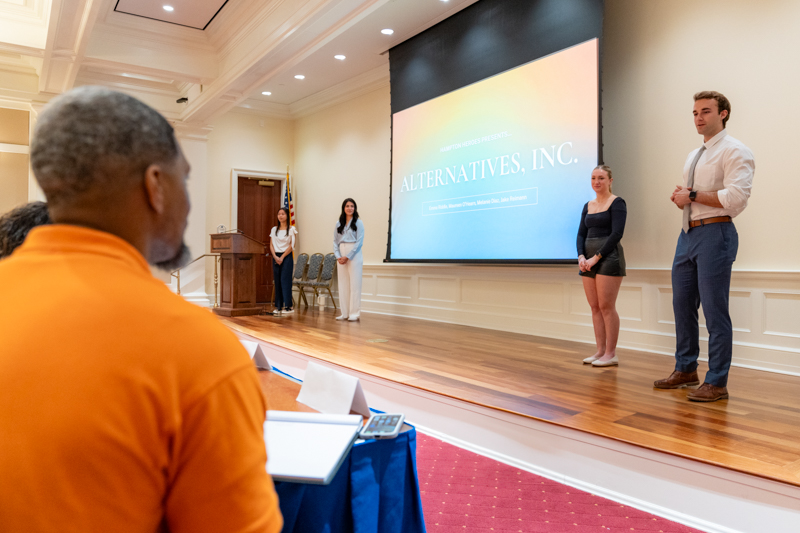While Meta is on the way to releasing its largest Llama 3 400B AI model, it appears the company has already used your Instagram and Facebook data to train its model. It’s opt-in by default, and users are notified about the policy change now.
On the Gen AI privacy page, Meta says, “We also use information shared on Meta’s Products and services. This information could be things such as posts or photos and their captions.” Basically, all your photos published on Facebook, and Instagram are being used for training Meta’s AI models. It applies to both private and public accounts.
We also use information shared on Meta’s Products and services. This information could be things such as posts or photos and their captions.
Meta goes on to say that private messages are not used for training AI models. The privacy policy further states, “Even if you don’t use our Products and services or have an account, we may still process information about you to develop and improve AI at Meta.” If someone has shared your image on Meta’s products like Facebook or Instagram, it will become part of the training data.
Now, Meta is allowing users to opt out of AI training, however, this only applies to data gathered from third parties. In simple terms, it means that you can’t remove your Facebook and Instagram data from Meta’s AI training dataset which is pretty concerning. OpenAI lets you opt out of AI training, and so does Google.
On top of that, the request will only be honored, if you provide evidence that your personal data is being generated by Meta’s AI model. This is a shady practice by Facebook. It should allow users to opt out of AI model training without any caveats. A user’s personal data should not be held hostage by a mega-corporation like this.
Related Articles
In Today’s AI Race, Don’t Gamble with Your Digital Privacy
May 1, 2024
How to Turn Off Meta AI on Instagram, WhatsApp, and Facebook
May 20, 2024
Nevertheless, if you want to remove your personal data which Meta has collected from third-party services and apps, you can follow the below guide.
- Open the Instagram app and move to your profile. Here, tap on the hamburger menu in the top-right corner.
- Scroll down to the bottom and tap on “Help“.
- After that, tap on “Help Center“.
- Next, tap on “About AIs on Instagram“.
- Here, tap on “how Meta uses information for generative AI models”.
- Now, scroll down to the bottom and tap on “Learn more and submit requests here.”
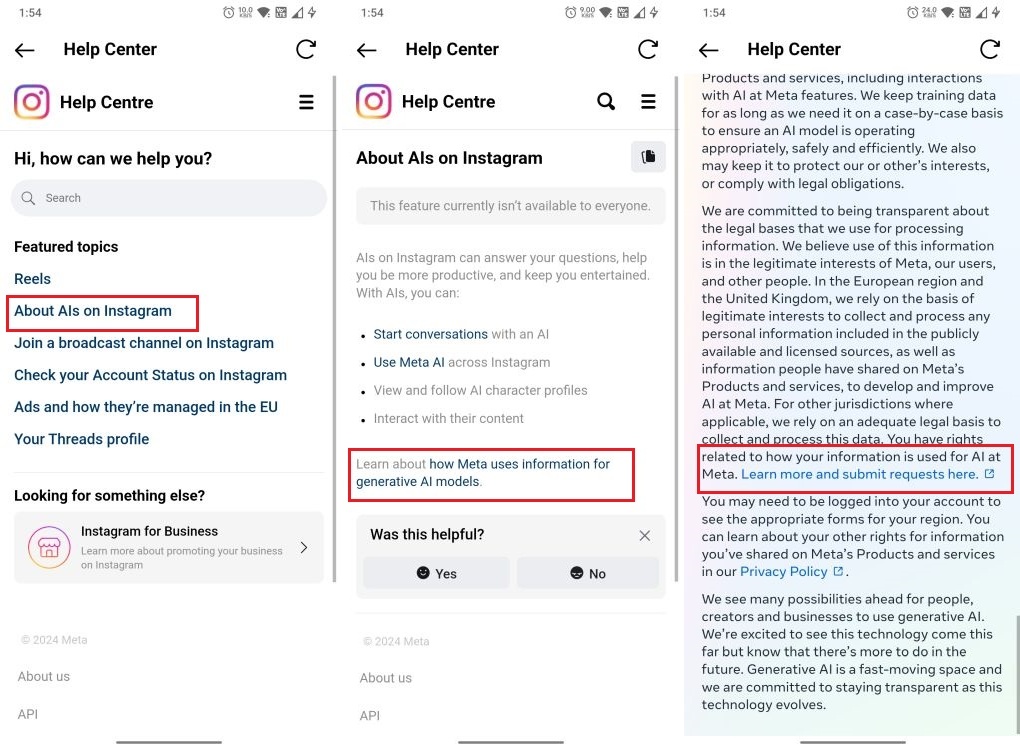
- Now, select one of the suitable options and fill out the form. To make things harder for users to opt out, Meta asks users to enclose proof with screenshots and relevant prompts.
- You will have to enter a one-time code received on your email address to process the request.
- Once your request is processed, you will receive an email notifying you whether your request has been honored or not.
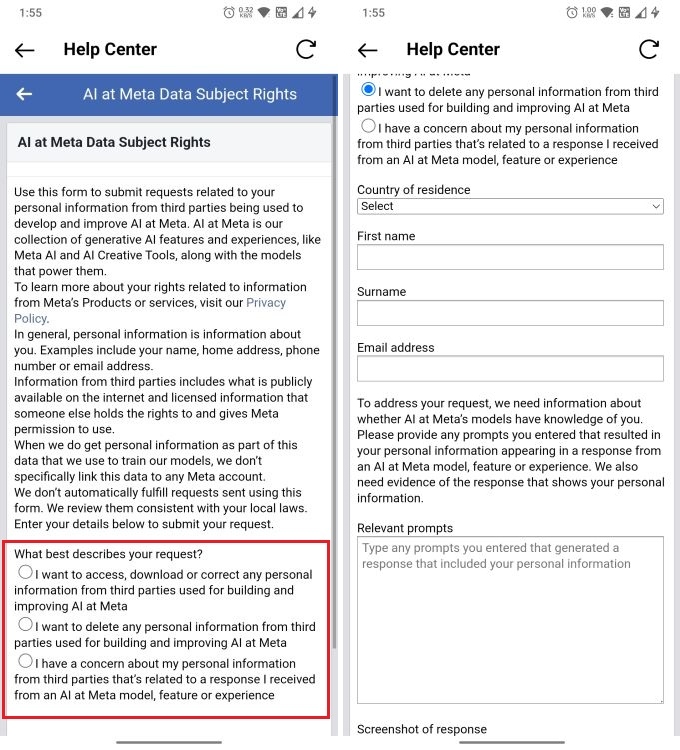
Stop Facebook From Training on Your Data on the Web
- Make sure you are logged into your Facebook account in your browser. Now, open the ‘AI at Meta Data Subject Rights’ page (visit).
- Here, select one of the options.
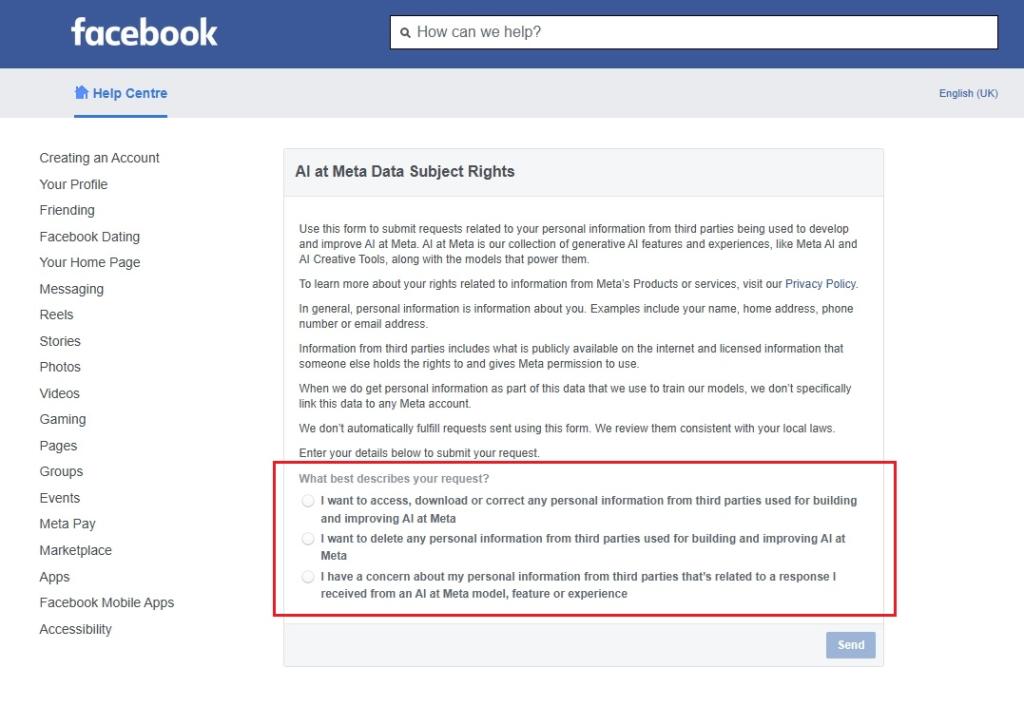
- Now, fill out the form and click on “Send”. Again, you will have to attach evidence of how Meta’s AI model generated your personal information.
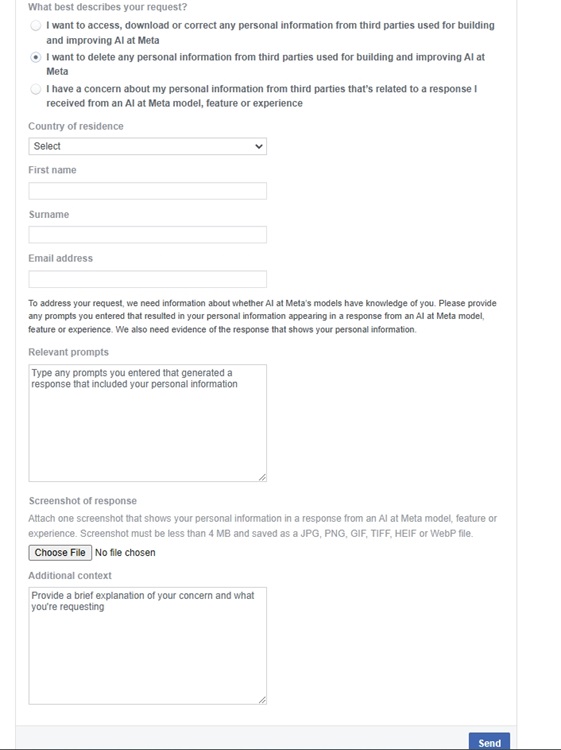
So this is how you can stop Facebook from training its AI model using your personal data collected from third-party services. Facebook has been mired in several privacy scandals in the past, and it continues to collect information without any respect for user consent. Recently, we learned that Facebook was spying on Snapchat users to grab sensitive user data.
The Facebook-Cambridge Analytica data scandal is still fresh in people’s minds. In view of Meta’s brute data collection tactic, if you want to quit Instagram, follow our guide and learn how to deactivate or delete your Instagram account. In addition, you can also delete your Facebook account. And if you have any questions, let us know in the comments below.

